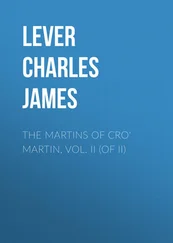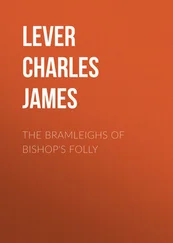Charles Lever - The Confessions of Harry Lorrequer — Volume 6
Здесь есть возможность читать онлайн «Charles Lever - The Confessions of Harry Lorrequer — Volume 6» — ознакомительный отрывок электронной книги совершенно бесплатно, а после прочтения отрывка купить полную версию. В некоторых случаях можно слушать аудио, скачать через торрент в формате fb2 и присутствует краткое содержание. Жанр: literature_19, foreign_antique, foreign_prose, на английском языке. Описание произведения, (предисловие) а так же отзывы посетителей доступны на портале библиотеки ЛибКат.
- Название:The Confessions of Harry Lorrequer — Volume 6
- Автор:
- Жанр:
- Год:неизвестен
- ISBN:нет данных
- Рейтинг книги:5 / 5. Голосов: 1
-
Избранное:Добавить в избранное
- Отзывы:
-
Ваша оценка:
- 100
- 1
- 2
- 3
- 4
- 5
The Confessions of Harry Lorrequer — Volume 6: краткое содержание, описание и аннотация
Предлагаем к чтению аннотацию, описание, краткое содержание или предисловие (зависит от того, что написал сам автор книги «The Confessions of Harry Lorrequer — Volume 6»). Если вы не нашли необходимую информацию о книге — напишите в комментариях, мы постараемся отыскать её.
The Confessions of Harry Lorrequer — Volume 6 — читать онлайн ознакомительный отрывок
Ниже представлен текст книги, разбитый по страницам. Система сохранения места последней прочитанной страницы, позволяет с удобством читать онлайн бесплатно книгу «The Confessions of Harry Lorrequer — Volume 6», без необходимости каждый раз заново искать на чём Вы остановились. Поставьте закладку, и сможете в любой момент перейти на страницу, на которой закончили чтение.
Интервал:
Закладка:
The rector of the parish my friend lived in was a man who added to the income he derived from his living a very handsome private fortune, which he devoted entirely to the benefit of the poor around him. Among the objects of his bounty one old woman — a childless widow, was remarkably distinguished. Whether commiserating her utter helplessness or her complete isolation, he went farther to relieve her than to many, if not all, the other poor. She frequently was in the habit of pleading her poverty as a reason for not appearing in church among her neighbours; and he gladly seized an opportunity of so improving her condition, that on this score at least no impediment existed. When all his little plans for her comfort had been carried into execution, he took the opportunity one day of dropping in, as if accidentally, to speak to her. By degrees he led the subject to her changed condition in life — the alteration from a cold, damp, smoky hovel, to a warm, clean, slated house — the cheerful garden before the door that replaced the mud-heap and the duck-pool — and all the other happy changes which a few weeks had effected. And he then asked, did she not feel grateful to a bountiful Providence that had showered down so many blessings upon her head?
"Ah, troth, its thrue for yer honour, I am grateful," she replied, in a whining discordant tone, which astonished the worthy parson.
"Of course you are, my good woman, of course you are — but I mean to say, don't you feel that every moment you live is too short to express your thankfulness to this kind Providence for what he has done?"
"Ah, darlin', it's all thrue, he's very good, he's mighty kind, so he is."
"Why then, not acknowledge it in a different manner?" said the parson, with some heat — "has he not housed you, and fed you, and clothed you?"
"Yes, alanah, he done it all."
"Well, where is your gratitude for all these mercies?"
"Ah, sure if he did," said the old crone, roused at length by the importunity of the questioner — "sure if he did, doesn't he take it out o' me in the corns?"
CHAPTER XLIV.
A REMINISCENCE OF THE EAST
The breakfast-table assembled around it the three generations of men who issued from the three subdivisions of the diligence, and presented that motley and mixed assemblage of ranks, ages, and countries, which forms so very amusing a part of a traveller's experience.
First came the "haute aristocratie" of the coupe, then the middle class of the interieure, and lastly, the tiers etat of the rotonde, with its melange of Jew money-lenders, under-officers and their wives, a Norman nurse with a high cap and a red jupe; while, to close the procession, a German student descended from the roof, with a beard, a blouse, and a meerschaum. Of such materials was our party made up; and yet, differing in all our objects and interests, we speedily amalgamated into a very social state of intimacy, and chatted away over our breakfast with much good humour and gaiety. Each person of the number seeming pleased at the momentary opportunity of finding a new listener, save my tall companion of the coupe. He preserved a dogged silence, unbroken by even a chance expression to the waiter, who observed his wants and supplied them by a species of quick instinct, evidently acquired by practice. As I could not help feeling somewhat interested about the hermit-like attachment he evinced for solitude, I watched him narrowly for some time, and at length as the "roti" made its appearance before him, after he had helped himself and tasted it, he caught my eye fixed upon him, and looking at me intently for a few seconds, he seemed to be satisfied in some passing doubt he laboured under, as he said with a most peculiar shake of the head — "No mangez, no mangez cela."
"Ah," said I, detecting in my friend's French his English origin, "you are an Englishman I find."
"The devil a doubt of it, darlin'," said he half testily.
"An Irishman, too — still better," said I.
"Why then isn't it strange that my French always shows me to be English, and my English proves me Irish? It's lucky for me there's no going farther any how."
Delighted to have thus fallen upon a "character," as the Irishman evidently appeared, I moved my chair towards his; and finding, however, he was not half pleased at the manner in which my acquaintance had been made with him, and knowing his country's susceptibility of being taken by a story, I resolved to make my advances by narrating a circumstance which had once befallen me in my early life.
Our countrymen, English and Irish, travel so much now a days, that one ought never to feel surprised at finding them anywhere. The instance I am about to relate will verify to a certain extent the fact, by showing that no situation is too odd or too unlikely to be within the verge of calculation.
When the 10th foot, to which I then belonged, were at Corfu, I obtained with three other officers a short leave of absence, to make a hurried tour of the Morea, and taking a passing glance at Constantinople — in those days much less frequently visited by travellers than at present.
After rambling pleasantly about for some weeks, we were about to return, when we determined that before sailing we should accept an invitation some officers of the "Dwarf" frigate, then stationed there, had given us, to pass a day at Pera, and pic-nic in the mountain.
One fine bright morning was therefore selected — a most appetizing little dinner being carefully packed up — we set out, a party of fourteen, upon our excursion.
The weather was glorious, and the scene far finer than any of us had anticipated — the view from the mountain extending over the entire city, gorgeous in the rich colouring of its domes and minarets; while, at one side, the golden horn was visible, crowded with ships of every nation, and, at the other, a glimpse might be had of the sea of Marmora, blue and tranquil as it lay beneath. The broad bosom of the Bosphorus was sheeted out like a map before us — peaceful yet bustling with life and animation. Here lay the union-jack of old England, floating beside the lilies of France — we speak of times when lilies were and barricades were not — the tall and taper spars of a Yankee frigate towering above the low timbers and heavy hull of a Dutch schooner — the gilded poop and curved galleries of a Turkish three-decker, anchored beside the raking mast and curved deck of a suspicious looking craft, whose red-capped and dark-visaged crew needed not the naked creese at their sides to bespeak them Malays. The whole was redolent of life, and teeming with food for one's fancy to conjure from.
While we were debating upon the choice of a spot for our luncheon, which should command the chief points of view within our reach, one of the party came to inform us that he had just discovered the very thing we were in search of. It was a small kiosk, built upon a projecting rock that looked down upon the Bosphorus and the city, and had evidently, from the extended views it presented, been selected as the spot to build upon. The building itself was a small octagon, open on every side, and presenting a series of prospects, land and seaward, of the most varied and magnificent kind.
Seeing no one near, nor any trace of habitation, we resolved to avail ourselves of the good taste of the founder; and spreading out the contents of our hampers, proceeded to discuss a most excellent cold dinner. When the good things had disappeared, and the wine began to circulate, one of the party observed that we should not think of enjoying ourselves before we had filled a bumper to the brim, to the health of our good king, whose birth-day it chanced to be. Our homeward thoughts and loyalty uniting, we filled our glasses, and gave so hearty a "hip, hip, hurra," to our toast, that I doubt if the echoes of those old rocks ever heard the equal of it.
Читать дальшеИнтервал:
Закладка:
Похожие книги на «The Confessions of Harry Lorrequer — Volume 6»
Представляем Вашему вниманию похожие книги на «The Confessions of Harry Lorrequer — Volume 6» списком для выбора. Мы отобрали схожую по названию и смыслу литературу в надежде предоставить читателям больше вариантов отыскать новые, интересные, ещё непрочитанные произведения.
Обсуждение, отзывы о книге «The Confessions of Harry Lorrequer — Volume 6» и просто собственные мнения читателей. Оставьте ваши комментарии, напишите, что Вы думаете о произведении, его смысле или главных героях. Укажите что конкретно понравилось, а что нет, и почему Вы так считаете.












